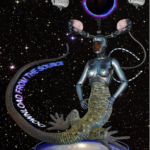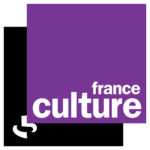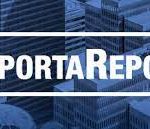CANCELLED: NSF – CNRS Dialogue: Global Challenges of the 21st Century
 DUE TO CIRCUMSTANCES BEYOND OUR CONTROL, THIS EVENT HAS BEEN CANCELLED. Climate change, cybersecurity, public health policy, and clean energy – the U.S. NSF, and France’s CNRS are actively engaged in addressing these societal challenges and more. Which issues will drive their research agendas? How are they adapting to today’s global opportunities and challenges? What role will they play in broadening STEM (science, technology, engineering, and mathematics) education to inspire a new generation to provide innovative approaches to tomorrow’s challenges?
DUE TO CIRCUMSTANCES BEYOND OUR CONTROL, THIS EVENT HAS BEEN CANCELLED. Climate change, cybersecurity, public health policy, and clean energy – the U.S. NSF, and France’s CNRS are actively engaged in addressing these societal challenges and more. Which issues will drive their research agendas? How are they adapting to today’s global opportunities and challenges? What role will they play in broadening STEM (science, technology, engineering, and mathematics) education to inspire a new generation to provide innovative approaches to tomorrow’s challenges?
France A. Córdova, director of the NSF, and Alain Fuchs, president of the CNRS, will come together in a lively exchange, moderated by Kevin Riley, editor of the Atlanta Journal-Constitution.
This event is co-organized by the Office for Science and Technology at the Embassy of France in the United States and Georgia Tech-Lorraine, in partnership with the National Science Foundation (NSF) and the French National Center for Scientific Research (CNRS).
The National Science Foundation (NSF) is an independent federal agency created by Congress in 1950 “to promote the progress of science; to advance the national health, prosperity, and welfare; to secure the national defense…” NSF is vital because it supports basic research and people to create knowledge that transforms the future. With an annual budget of $7.5 billion (FY 2016), NSF is the funding source for approximately 24 percent of all federally supported basic research conducted by America’s colleges and universities. In many fields such as mathematics, computer science and the social sciences, NSF is the major source of federal backing.
The National Center for Scientific Research (CNRS) is a public organization under the responsibility of the French Ministry of Education and Research. Founded in 1939, the CNRS aims to carry out all research capable of advancing knowledge and bringing social, cultural, and economic benefits for society, to contribute to the promotion and application of research results, to support research training and to develop scientific information.
This France-Atlanta event is made possible with the support of:







